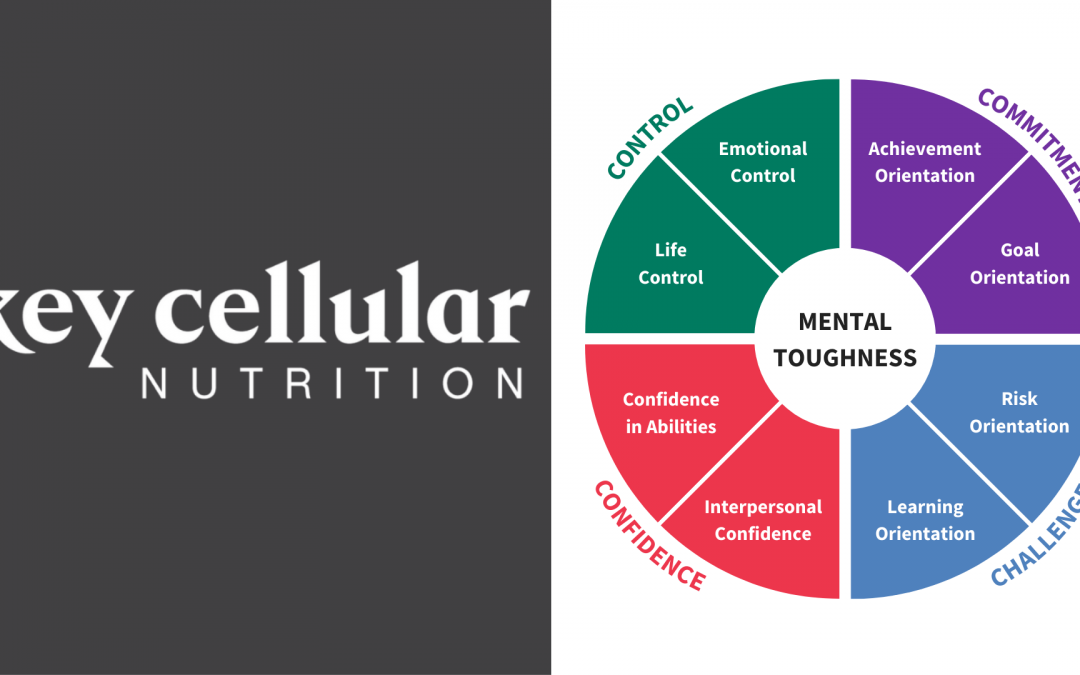An innovative approach for improving physical and mental health and well-being in the United States.
An application of the mental toughness concept
Part two – The impact on the Individual
Part one of the study on the KCN Cellular Health Accelerator Program showed that the application of the mental toughness concept and the MTQ plus measure of mental toughness is an important factor in programs designed to improve physical and mental health and well-being over an extended period of time. Results for a large number of participants were very positive.
In general, it is the case that it is self awareness about the 8 factors that compose an individual’s level of mental toughness which can benefit most people.
The eight factors and the four constructs are shown in Fig 1 below:
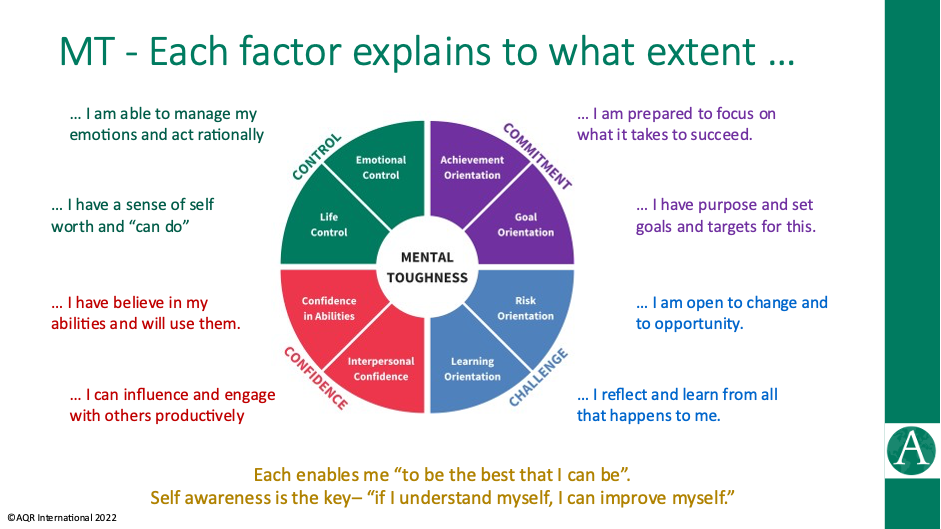
It is also the case, because each of the eight factors is significantly independent of the other and people have different levels of each factor, that people have individual mental toughness profiles.
In turn this means that all of us respond differently to what happens to us and around us. Each person takes a unique and personal journey to achieve an important purpose and the goals that go with it.
Whilst the study data shows great progress overall, analyses also showed many individual success stories with significant changes in mental toughness scores and many participants reporting substantial wins in terms of achieving outcomes important to them.
We illustrate this by reporting briefly on four of those success stories are shared below.
Case A
Case A is a 41-year-old female who suffers from PCOS, Alopecia, Type 2 Diabetes and Heart Arrhythmia. She reported feeling tired of being tired and wanted to reduce joint and muscle pain. Case A completed the MTQPlus questionnaire twice four months apart. Her results are presented below.
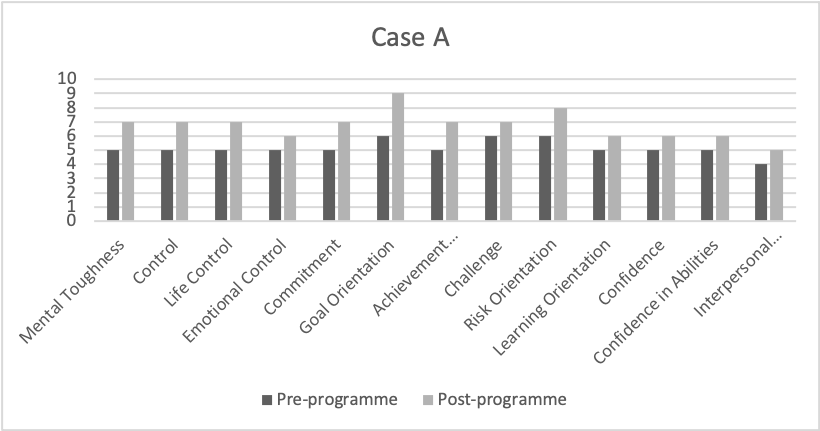
Case A’s MTQPlus scores show a significant increase across all mental toughness scales. In her final health assessment, she reports ‘wins’ including improved gut health, better sleep, more balanced hormones, reduced back pain and a weight loss of 16 pounds over the 4-month period.
Case B
Case B is a 64-year-old female with health complaints including weight gain and liver issues.
She suffers from Lupus and also reported suffering four head injuries.
Case B completed the MTQPlus twice, four months apart. Whilst she scores average or above average scores across some scales, results show scores for overall mental toughness, goal orientation, and impersonal confidence to be more mentally sensitive.
Post-program MTQPlus results show a marked increase in scores across the board.
In her final health assessment, Case B reported weight loss and less pain. She also reported that she had started exercising and that the Cellular Health Accelerator Program was the first program she ever stayed with. This might reflect the significant increase in her commitment scores.
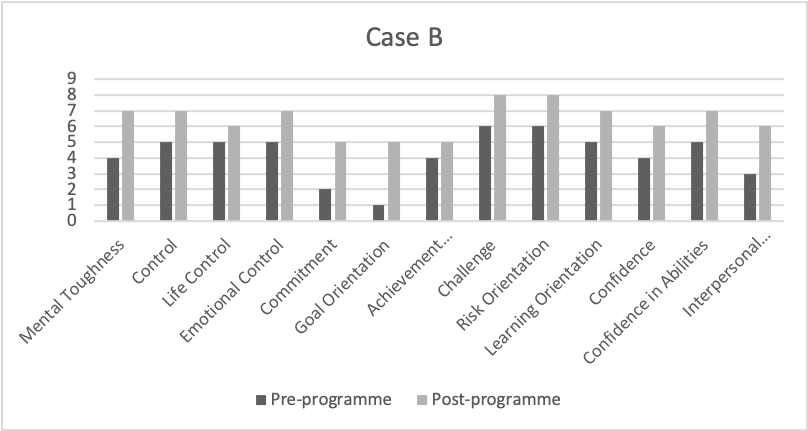
Case C
Case C is a 61-year-old female whose reported complaints included bronchiectasis, adrenal fatigue, chronic fatigue, heart palpitations, eye floaters, spinal issues and constant pain. She completed two MTQPlus questionnaires three months apart.
Her baseline MTQPlus scores were very mentally sensitive across multiple scales including control and commitment. Her post-program MTQPlus scores show small increases in mental toughness across scales including control, commitment, goal orientation and confidence.
Larger changes in scores were observed across scales including achievement orientation, risk orientation and learning orientation. Those with very low levels of mental toughness often find it harder to increase their scores. Small changes are significant here.
In her final health assessment, Case C reported experiencing less stomach pain, reduced bloating, less pain, improved skin and her back pain dissipated.
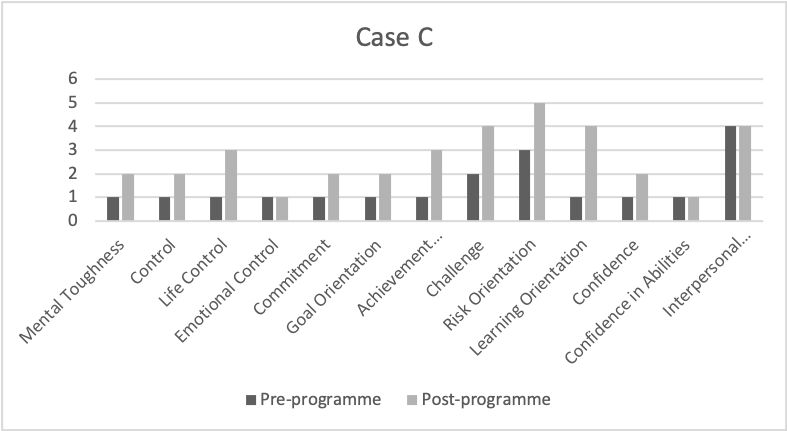
Case D
Case D is a 60-year-old female.
Reported health complaints included bloating, IBS, low energy, headaches and joint pain.
She completed two MTQPlus measures five months apart. Her MTQPlus scores are shown below.
Her baseline scores are all in the mentally sensitive zone. Post-program results showed significant increases across all scales. In her final health assessment, she reported that her headaches had gone, her joints were no longer hurting, she was no longer constipated and her acid reflux had improved.
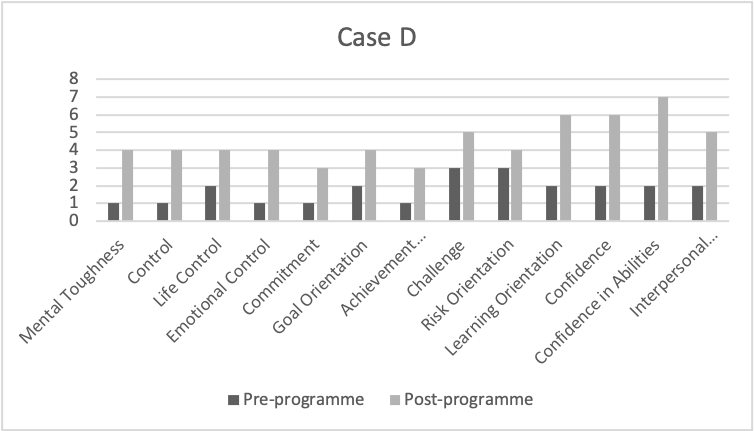
In conclusion
These examples illustrate the advantages achieved by clients using the mental toughness concept and measure in the program.
They benefitted by improving overall resilience and positivity and all that goes with that. Importantly they benefitted by achieving their program goals in improving their health and wellbeing.

